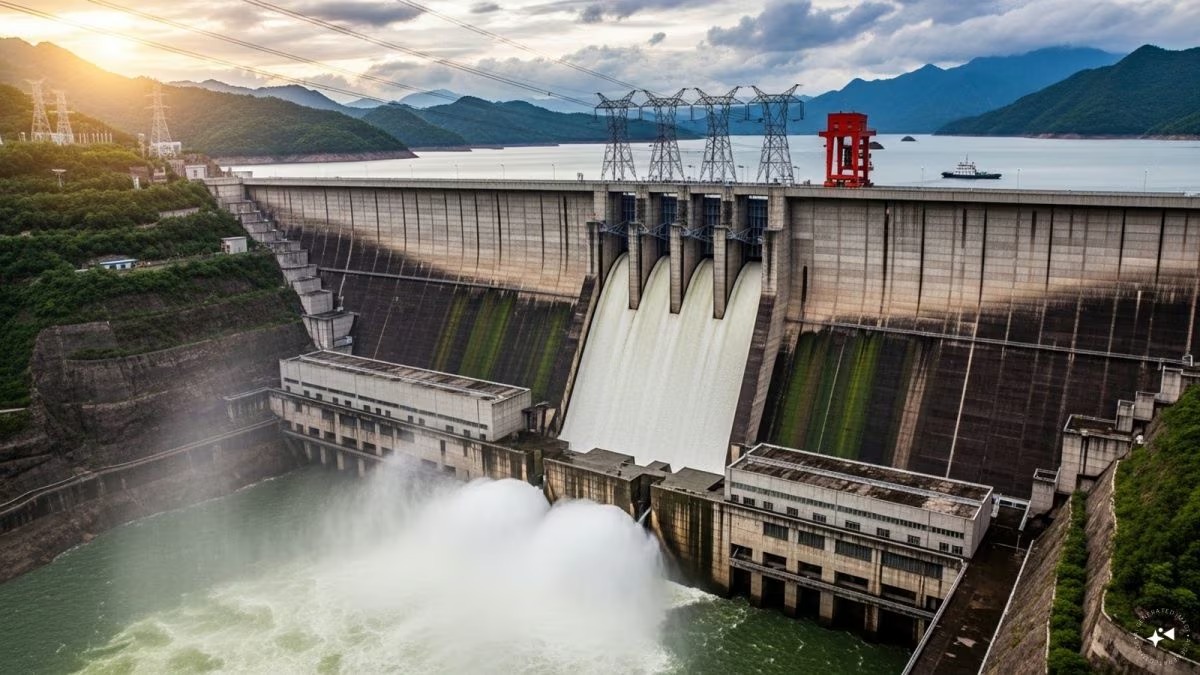
Follow WOWNEWS 24x7 on:

In a high-level diplomatic exchange that underscores the complexity of India-China relations, the Indian Ministry of External Affairs has issued a strong statement following recent talks with Chinese officials. The discussions covered a range of sensitive topics including boundary delimitation, military de-escalation, and most notably, India’s deep concerns over China’s proposed mega dam project on the lower reaches of the Yarlung Tsangpo river—known as the Brahmaputra once it enters India.
Key highlights from the ministry’s statement
1. India emphasized the need for utmost transparency regarding China’s dam construction plans on the Yarlung Tsangpo
2. The Foreign Minister strongly underlined ecological, strategic, and humanitarian concerns tied to the mega infrastructure project
3. Talks also addressed issues of de-escalation along the Line of Actual Control, boundary delimitation, and broader bilateral stability
4. India reiterated its position as a lower riparian state with established user rights and called for consultation before upstream developments
Concerns over the Yarlung Tsangpo mega dam
- China’s plan to construct what could become the world’s largest hydroelectric dam near the Great Bend of the Yarlung Tsangpo has triggered alarm in India and Bangladesh
- The project, estimated at USD 137 billion, is located in a seismically active and ecologically fragile zone near the India-China border
- India fears that the dam could alter water flow, impact agriculture and biodiversity in Arunachal Pradesh and Assam, and reduce water availability during dry seasons
- The Foreign Ministry stressed that unilateral actions on transboundary rivers violate international norms and could destabilize regional cooperation
India’s diplomatic stance and strategic messaging
- The Indian Foreign Minister conveyed that transparency and prior consultation are non-negotiable when it comes to shared water resources
- India has consistently raised concerns through expert-level and diplomatic channels, but the latest statement marks a more assertive tone
- The ministry also highlighted the need for China to respect downstream interests and avoid activities that could harm the ecological balance or livelihoods in India’s northeast
- India’s position aligns with its broader foreign policy approach of strategic autonomy and regional stability
Boundary and security discussions
- The talks included detailed exchanges on de-escalation along friction points in eastern Ladakh and Arunachal Pradesh
- India reiterated the importance of restoring peace and tranquillity along the border as a prerequisite for normalizing bilateral ties
- Delimitation discussions focused on clarifying the Line of Actual Control and preventing future standoffs
- Both sides agreed to continue engagement through the Special Representatives mechanism and military-level dialogues
Environmental and geopolitical implications
- Experts warn that large-scale dam projects in the Himalayas pose risks of landslides, flash floods, and seismic disturbances
- India’s call for transparency is also rooted in concerns over China’s growing influence in regional water governance
- The Brahmaputra is a lifeline for millions in India and Bangladesh, making any upstream intervention a matter of strategic urgency
- The issue could also impact India’s participation in regional forums like the Shanghai Cooperation Organisation and BIMSTEC
Looking ahead
- India is expected to raise the dam issue again during the upcoming SCO Summit in Tianjin, where Prime Minister Modi will meet President Xi Jinping
- The Ministry of External Affairs may push for a bilateral water-sharing framework or a multilateral code of conduct for transboundary rivers
- Domestic agencies are likely to increase monitoring of river flow and sediment levels to assess potential impacts from upstream construction
- India may also accelerate its own hydropower and flood-control projects in the northeast as a counterbalance
Sources: Times Now News, Livemint, South China Morning Post, Ministry of External Affairs India



